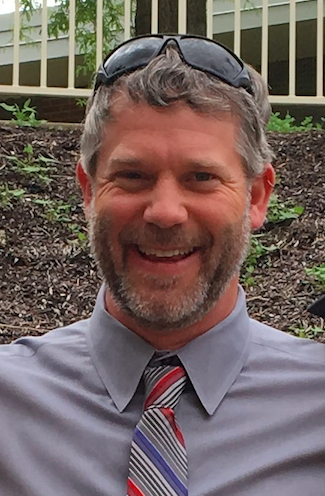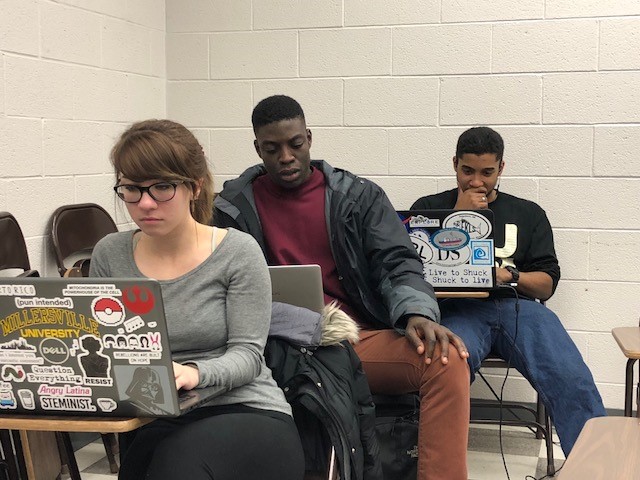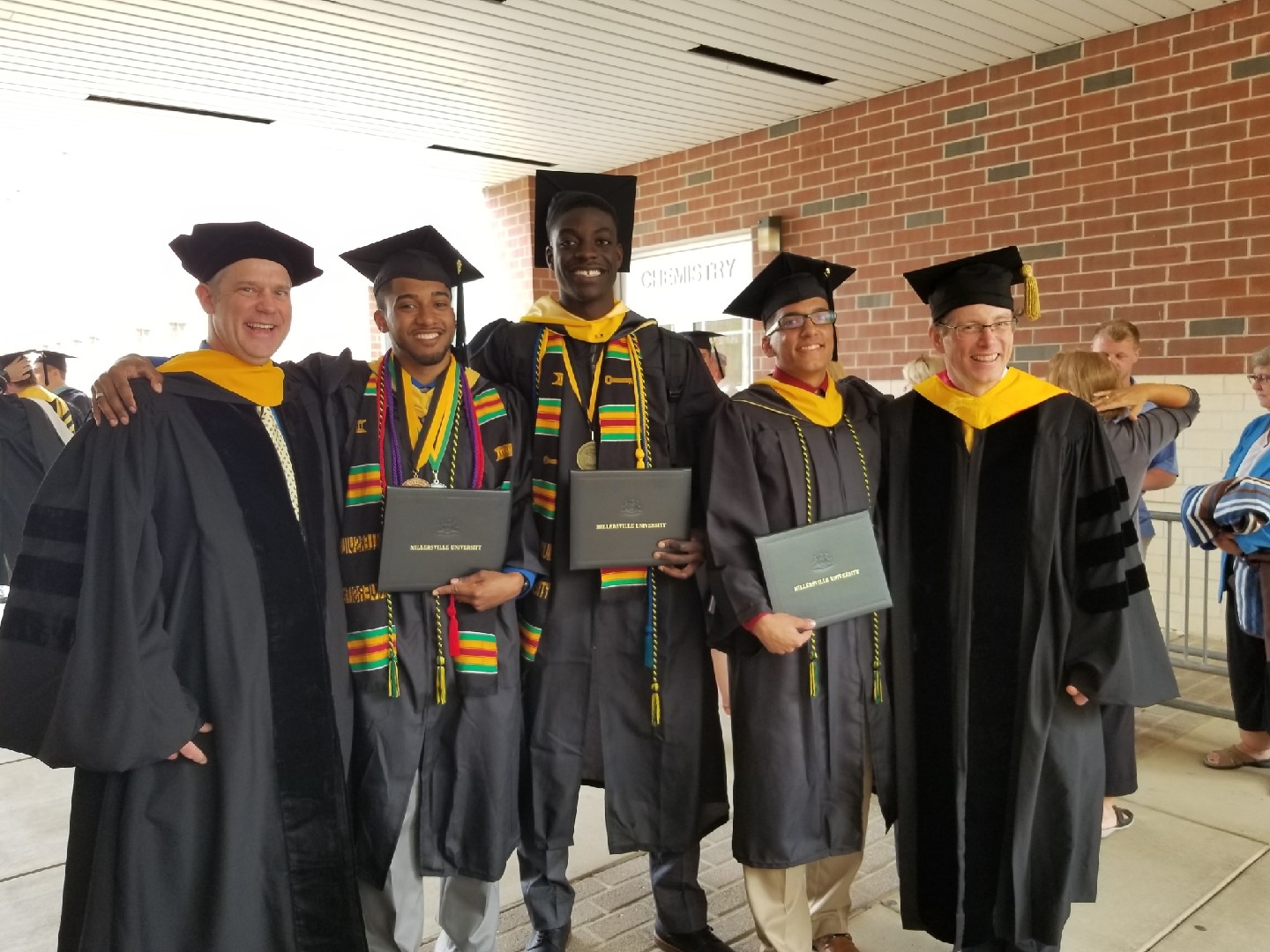Innovative Practices Spotlight
CAE Innovative Practices Spotlight

The Center for Academic Excellence is recognizing a faculty member every month in the CAE Innovative Practices Spotlight to highlight his or her innovative classroom practices and outstanding contribution to Millersville University.
Dr. Brent Horton is being recognized in December for his exceptional use of the Biology Mentorship Program in the Biology department!
Please continue reading to learn more about his exciting experience and to learn ways to incorporate innovative practices into your classroom.
1. What innovative practice did you incorporate into your degree program?
The Biology Mentorship Program (or BMP for short) is an initiative aimed at promoting the success and retention of underrepresented minority students in the biology major. The BMP provides academic and social support via peer-mentoring and faculty guidance to enhance performance in the classroom, foster the establishment of a strong sense of community among biology students of color, encourage greater engagement in Departmental and University activities, and inspire the development of scientific identities. The peer mentors are themselves underrepresented students with demonstrated success in the biology major. We currently provide nearly 20hrs of Open Study and 7hrs of Coffee Breaks each week. Open Study sessions are aimed at helping students with their coursework, exam preparation, and study habits; each session is staffed with a peer mentor who is qualified to tutor for one or more biology core courses. Coffee Breaks are designed for social mentoring and building connections among students. In addition, we hold two-hour Program Meetings twice monthly where participants, mentors, and invited guests share a meal and engage in discussion and activities aimed at building camaraderie and developing skills necessary for success in the biology major and beyond. We also offer one-on-one mentoring for biology students. Finally, we provide support and guidance for the peer mentors to invest in their continued success in biology and beyond. The BMP is working to establish a campus-wide network of support by forming links with the Chemistry and Math departments, as well as the offices of Student Success, Financial Aid, Learning Services, Academic Advisement, Athletics, and Enrollment Management. We are also aiming to join forces with other ongoing campus initiatives invested in underrepresented student success. These growing connections are increasing the BMP's ability to meet the diverse needs and interests of our biology students of color.
2. When did you implement the new practice into the degree program?
The BMP was developed during the 2016-2017 academic year and launched in Fall 2017 by Dr. Brent Horton with the support of several members of the faculty and administration.
3. Did the students willingly accept the new practice? What were the reactions of the students?
Student involvement in the BMP continues to grow. Our first meeting of the BMP at the beginning of the Fall 2017 semester attracted only four biology students. By the end of the Spring 2018 semester, more than 35 students (including mentors) were involved at some level in the BMP. This fall, we have maintained momentum in terms of student involvement, as 30-40 biology students are currently involved in the BMP to varying degrees. Student reactions to the BMP have been overwhelmingly positive.
4. How has the use of the new practice positively affected the classroom learning environment? & 5. How has the use of the new practice affected student engagement in the classroom and the level of participation?
We are now in the process of formally assessing program outcomes, and results are not yet available due to the early state of the program. Anecdotally, underrepresented students who participate fully in the BMP by regularly attending Program Meetings and Open Study are more likely to exhibit increased engagement and performance in their biology courses and are more likely to persist in the biology degree than those who do not engage in the BMP. The sense of community among underrepresented biology students has grown exponentially over the last year, as peer mentors and program participants have shown increased engagement in their Department and University, as indicated by rising levels of underrepresented student involvement in departmental activities, student clubs and organizations, and professional development events.
Faculty, staff, and administrative support and involvement have also increased over the last year, which has led to a broader support network for students and opened new lines of communication about student performance and well being at the Departmental and University levels. This increased communication is allowing the BMP and its allies to more effectively identify issues with student performance and intervene sooner in an effort to provide more timely and effective support for our underrepresented biology majors.
6. What challenges did you encounter when you were implementing the new practice?
Our biggest challenge has been (and continues to be) recruiting and maintaining regular student participation in BMP activities; indeed, our success in this regard is the result of a consistent and intensive effort on behalf of Dr. Horton and the BMP Peer Mentors. Our students face many competing demands for their time, as they must balance their coursework, employment, athletics, and involvement in other campus activities. To address this issue, we work with BMP participants to learn to develop their time management skills and more effectively balance their course loads and extracurricular activities, while still finding time for involvement in the BMP.
7. How did attending Camp IDEA or a CAE Professional Development session contribute to your learning and use of the innovative practice?
My interest in promoting the success of our underrepresented students actually began during Faculty Orientation, where I first learned about patterns of student success and retention at MU. Over the years, my work with our talented and capable underrepresented biology students inside and outside the classroom has inspired my efforts to develop and launch the BMP as an initiative to better meet the diverse needs of our students and expand our ability to support the success of our majors. Likewise, my many conversations with dedicated MU faculty and administrators have provided me with the support and direction I needed to get this program off the ground. A particularly influential factor in the development of this vision was my involvement in a CAE-sponsored Faculty Learning Community focused on mentoring underrepresented students in STEM. The weekly discussions with colleagues who shared my strong interest in promoting the success of our underrepresented students were integral in encouraging and shaping the BMP initiative.

Caption: Biology students at work during a BMP Open Study session. The BMP Peer Mentors lead nearly 20 hours of Open Study each week in classrooms reserved for BMP participants.

Caption: The BMP promotes and celebrates the accomplishments of underrepresented biology students. Shown here (from left to right) at the Spring 2018 commencement are Dr. Brent Horton, Founder and Director of the BMP; Edwin Sanchez, Jason Iyobhebhe, and Manny Bassa Silfa, 2017-2018 BMP Peer Mentors; and Dr. Michael Jackson, Dean of the College of Science and Technology and key BMP supporter.
-
Faculty in The Spotlight
-
Faculty in The Spotlight